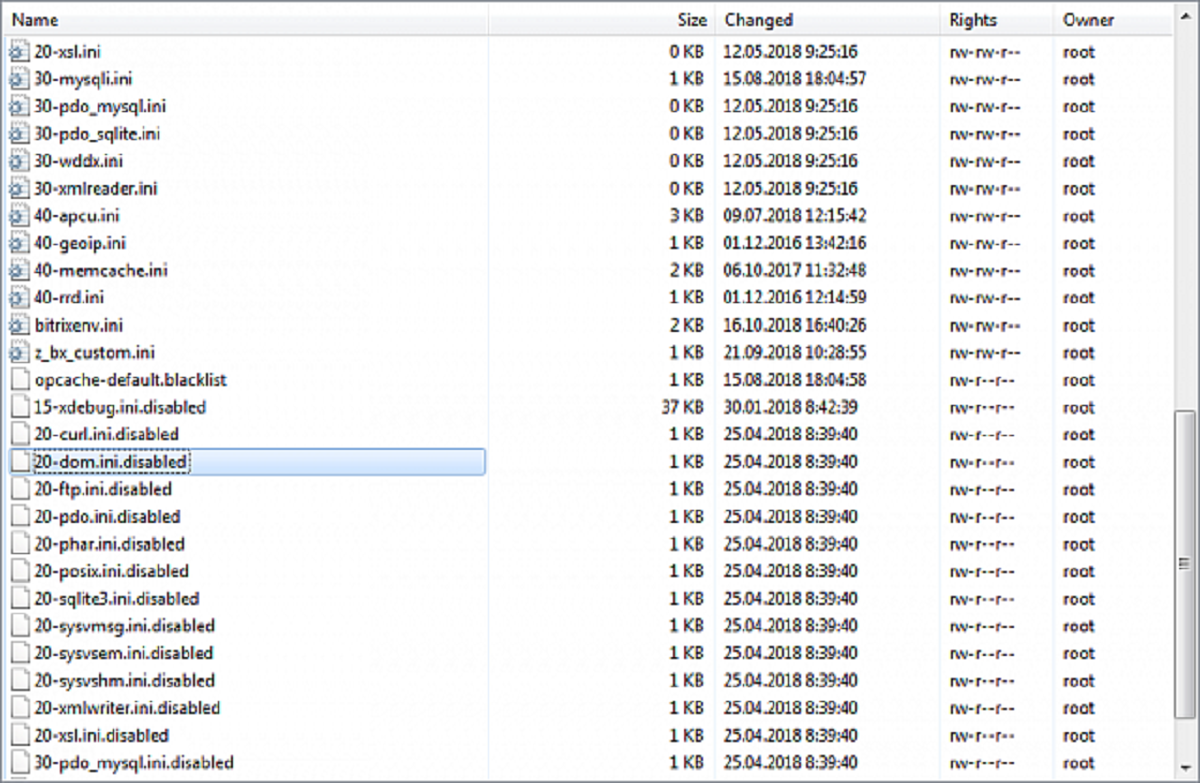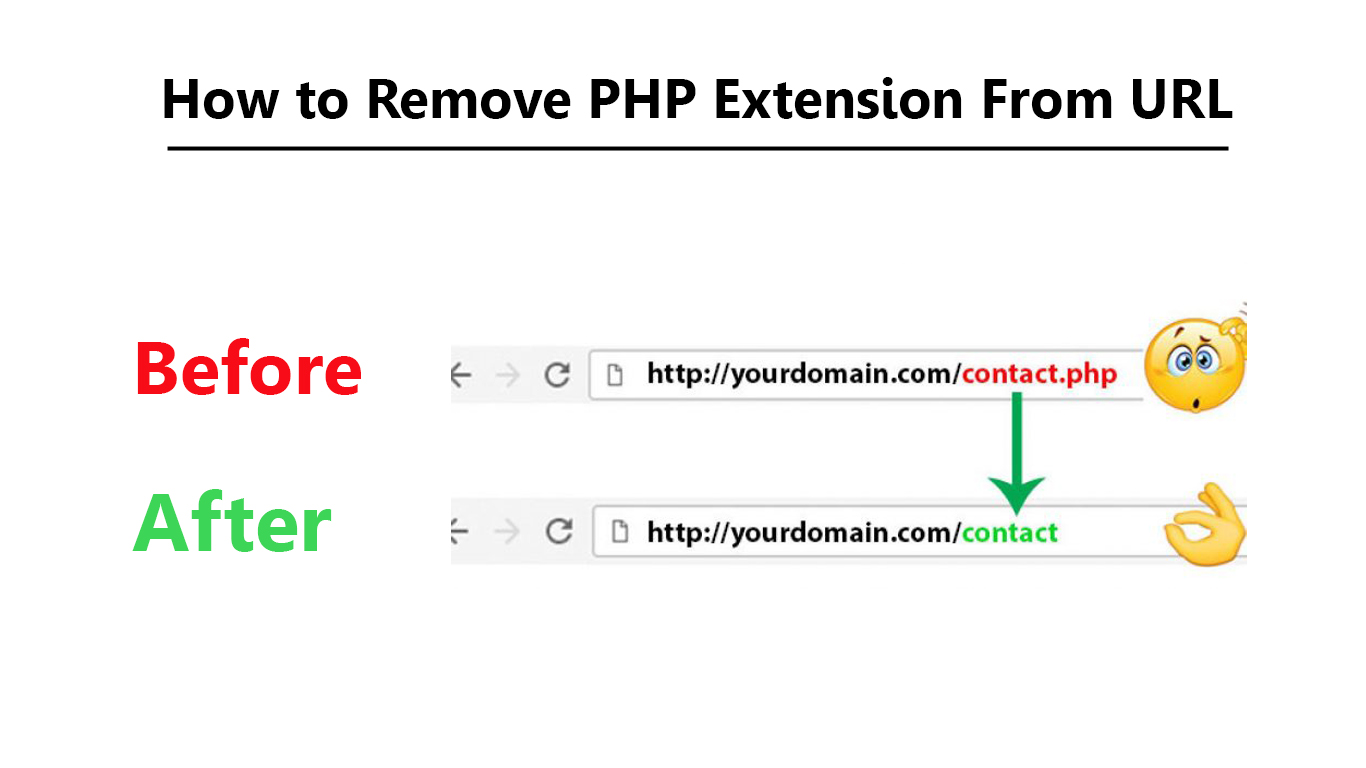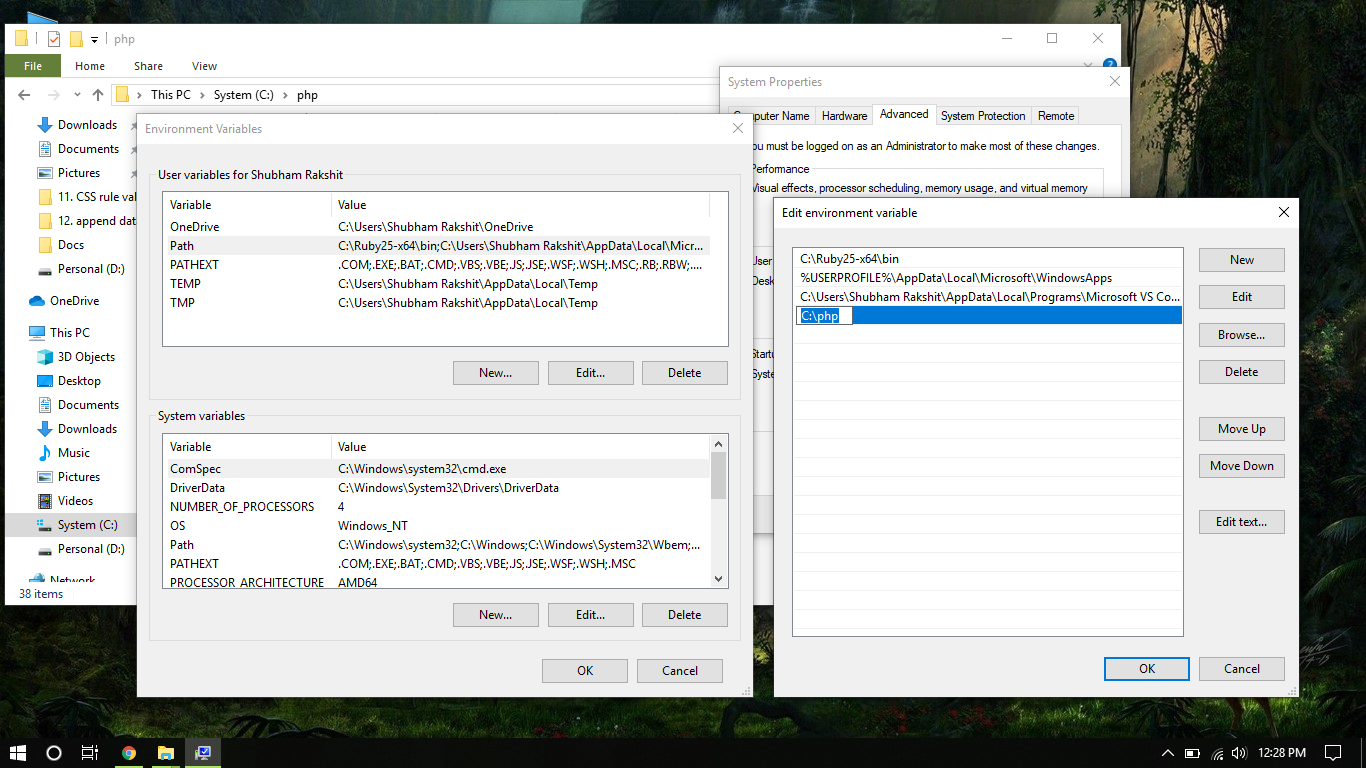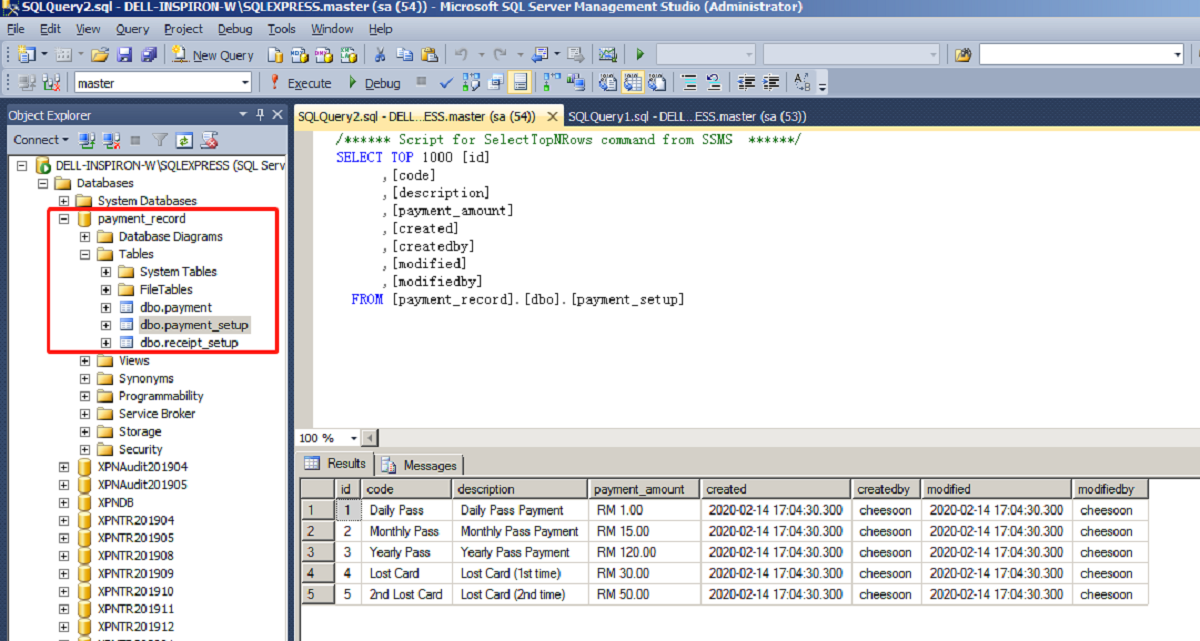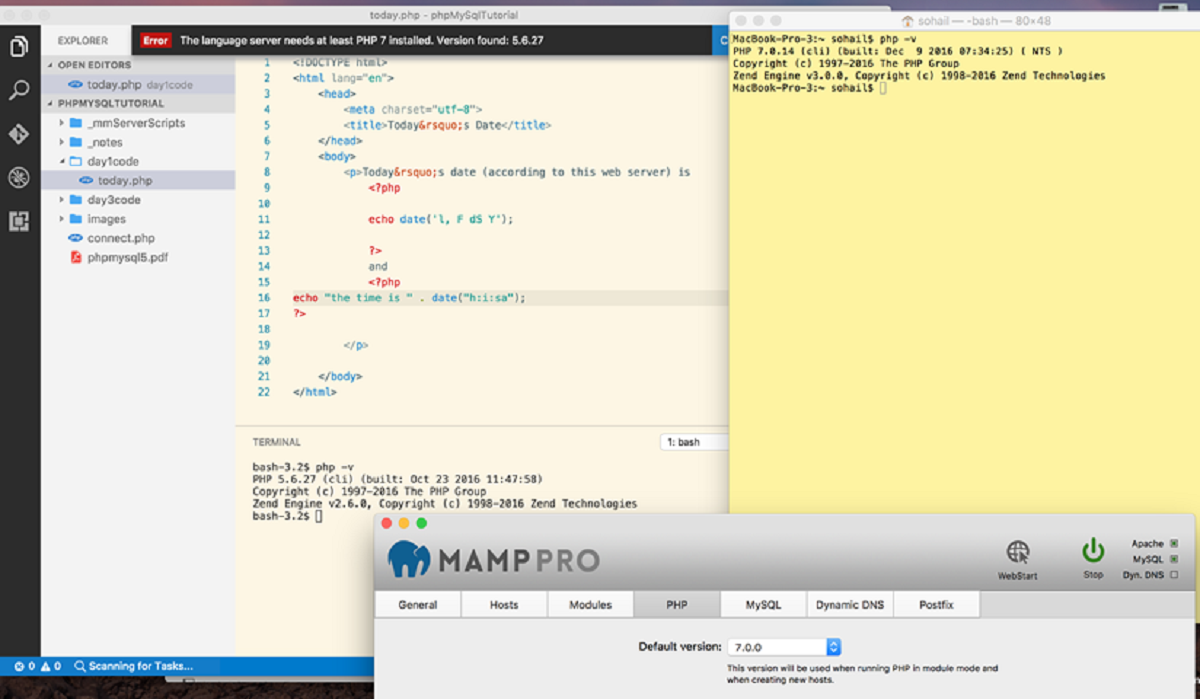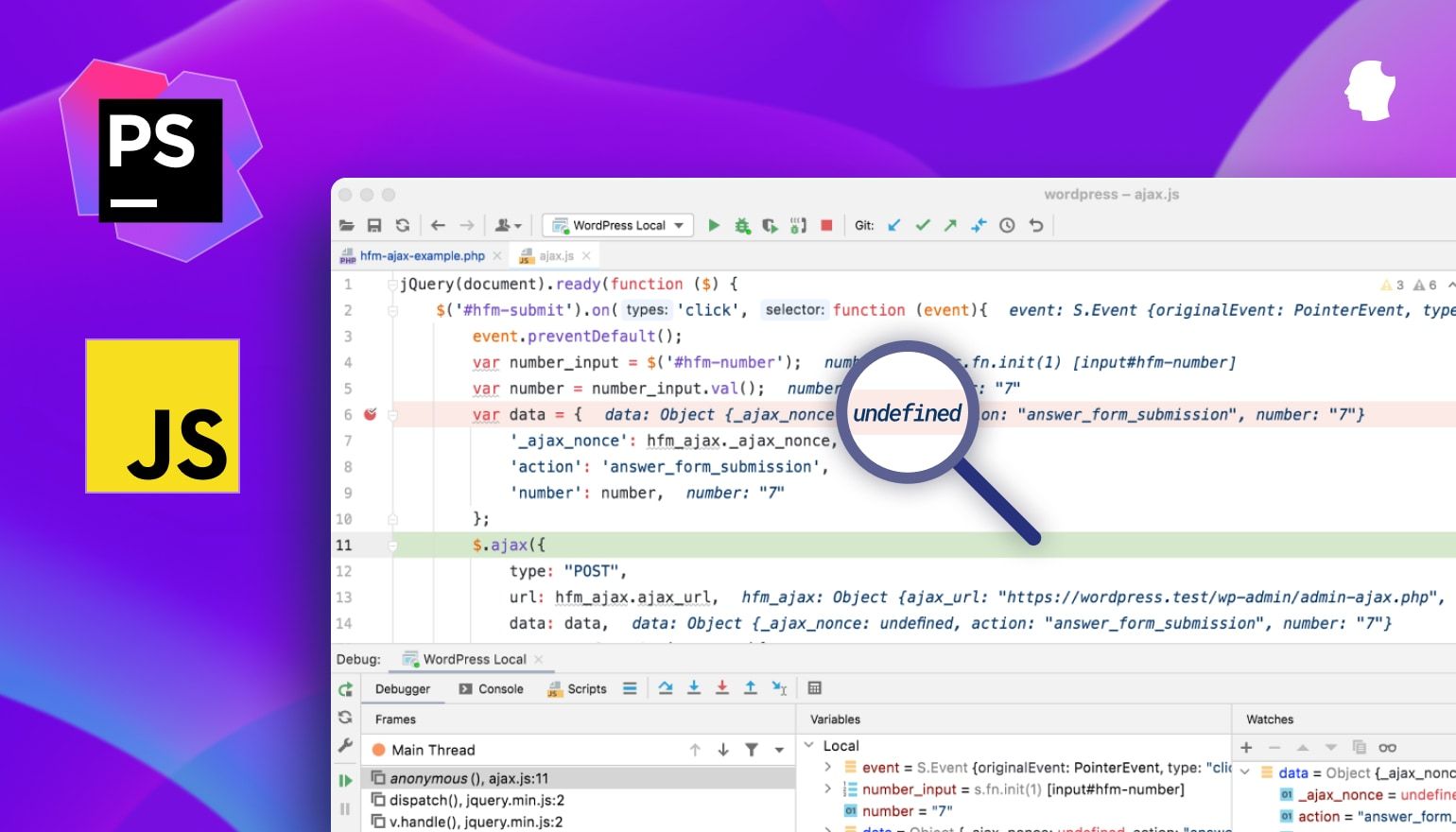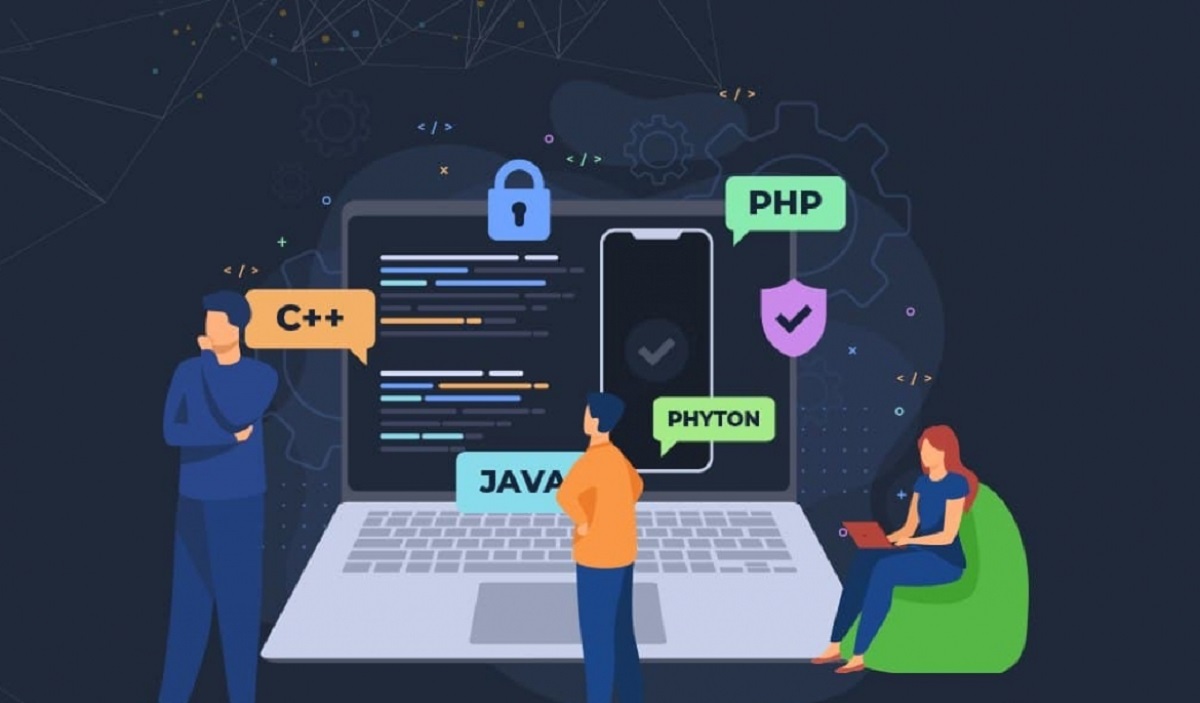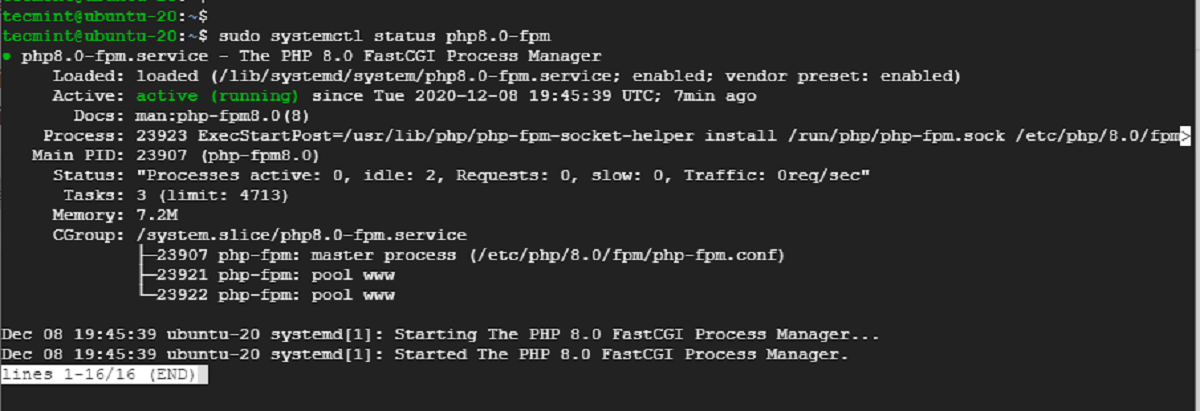Introduction
Welcome to the world of PHP extensions! If you’re a developer or someone interested in web development, you’ve probably come across the term “PHP extension” at some point. But what exactly are PHP extensions, and why are they so important?
PHP is a popular programming language used for web development. It provides a wide range of built-in functions and features to make web development easier and more efficient. However, there may come a time when you need additional functionality that is not available in the core PHP language. This is where PHP extensions come into play.
A PHP extension is a module that extends the capabilities of the PHP language by adding new functions, classes, or settings. These extensions can be developed by the PHP community or by individuals to provide specific functionalities that are not included in the core PHP language.
Why are PHP extensions important, you might wonder? Well, imagine trying to build a complex web application without the ability to handle image processing or connect to a database. PHP extensions fill these gaps by adding support for various functionalities, such as database connectivity, image manipulation, caching mechanisms, and more.
With PHP extensions, developers have the ability to enhance the functionality of their PHP applications, making them more versatile, powerful, and efficient. They provide a way to extend the core PHP language, allowing developers to tailor their applications to specific needs and requirements.
In this article, we’ll explore how PHP extensions work, discuss some popular PHP extensions, and look at the benefits they provide. We’ll also cover the process of installing PHP extensions and provide troubleshooting tips in case you encounter any issues.
So, if you’re ready to dive deeper into the world of PHP extensions and expand your PHP development skills, let’s get started!
Definition of a PHP Extension
A PHP extension can be defined as a module or plugin that extends the functionality of the PHP programming language. It adds new features, functions, or classes that are not included in the core PHP language. These extensions are written in C or C++ and can be dynamically loaded and compiled into a PHP server at runtime.
PHP extensions provide a way for developers to expand the capabilities of PHP and integrate it with other technologies. They allow developers to tap into the vast number of libraries and APIs available in various programming languages and incorporate them into their PHP applications.
These extensions can be created to provide a wide range of functionalities, such as database connectivity, image processing, encryption, networking, caching, debugging, and more. They enable developers to handle complex tasks and improve the performance and efficiency of their PHP applications.
There are two types of PHP extensions: built-in extensions and PECL (PHP Extension Community Library) extensions. Built-in extensions are modules that are bundled with PHP and are available by default. They are enabled in the PHP configuration file and provide core functionalities like file handling, JSON manipulation, and database connectivity.
PECL extensions, on the other hand, are community-contributed extensions that are not included in the core PHP distribution. They are maintained by the PHP community and cover a wide range of functionalities. These extensions need to be downloaded and installed separately from the PECL repository.
PHP extensions can be developed by anyone with knowledge of C or C++ programming languages. The PHP community actively encourages developers to create and contribute extensions, making them available to the larger PHP developer community.
Overall, PHP extensions are powerful tools that allow developers to extend the capabilities of PHP, integrate with other technologies, and build robust and feature-rich applications. They provide immense flexibility and foster a vibrant ecosystem by enabling developers to share and utilize their expertise in various domains.
Why Are PHP Extensions Important?
PHP extensions play a crucial role in web development, offering a multitude of benefits and advantages to developers. Let’s take a closer look at why PHP extensions are important:
1. Extended Functionality: PHP extensions provide additional functionalities that are not available in the core PHP language. They allow developers to leverage existing libraries and APIs to handle complex tasks more efficiently. Whether it’s image manipulation, PDF generation, or advanced cryptography, PHP extensions enhance the capabilities of PHP and enable developers to incorporate a vast range of functionalities into their applications.
2. Performance Optimization: Many PHP extensions are designed to improve the performance and efficiency of PHP applications. For instance, caching extensions like APCu or memcached can significantly reduce page load times by storing frequently accessed data in memory. Database extensions like PDO or MySQLi provide optimized ways to connect and interact with databases, enhancing speed and scalability.
3. Integration with Other Technologies: PHP extensions bridge the gap between PHP and other programming languages or technologies. They enable seamless integration with systems like databases, image processing libraries, third-party APIs, and more. This interoperability allows developers to build powerful applications that can interact with and leverage a diverse array of technologies.
4. Community-driven Development: PHP extensions are developed and maintained by a vibrant community of PHP programmers. This community actively contributes to the development and enhancement of PHP through the creation of extensions. This collaborative effort ensures a constant stream of new and improved functionalities, expanding the possibilities of what can be achieved with PHP.
5. Open-source and Customizability: PHP extensions are typically open-source, meaning that their source code is freely available. This openness allows developers to explore, customize, and contribute to the extensions according to their needs. Developers can create their own customized extensions or modify existing ones to align with their application’s requirements, giving them complete control over the functionality of their PHP applications.
6. Accessibility: PHP extensions are widely available and can be easily installed and enabled on most PHP servers. Many popular extensions come pre-installed with PHP distributions, making it convenient for developers to use them right away. Additionally, the extensive documentation and online resources available for PHP extensions make it easier for developers to learn and utilize them effectively.
Overall, PHP extensions are of immense importance in PHP development. By providing extended functionalities, enhancing performance, facilitating integration with other technologies, and fostering community-driven development, PHP extensions empower developers to build sophisticated and feature-rich applications that meet the diverse needs of businesses and end-users.
How PHP Extensions Work
Understanding how PHP extensions work is essential for developers looking to harness their power and extend the functionality of their PHP applications. Let’s delve into the inner workings of PHP extensions:
1. Compilation: PHP extensions are typically written in C or C++ due to their close proximity to the underlying PHP engine, known as the Zend Engine. The source code of the extension is compiled into a shared library file (.so or .dll) specific to the operating system and PHP version being used.
2. Loading: Once compiled, the PHP extension needs to be loaded into the PHP runtime environment. There are two ways to load extensions: statically or dynamically. Static loading involves adding the extension in the PHP configuration file (php.ini) and automatically loading it during PHP startup. Dynamic loading, on the other hand, allows for the extension to be loaded at runtime using the PHP extension loading mechanism.
3. Integration with the Zend Engine: Once the extension is loaded, it becomes an integral part of the PHP environment, seamlessly integrating with the Zend Engine. This integration allows the extension to extend the core functionality of PHP by adding new functions, classes, or settings.
4. Using Extension Functions: Once an extension is loaded, its functions can be accessed and used within PHP scripts like any other built-in PHP function. Developers can invoke these extension functions to perform specific tasks or access advanced features and capabilities provided by the extension. The extensions’ functions can be called directly or included in user-defined functions or classes.
5. Interacting with Core PHP: PHP extensions can interact with the core PHP language, accessing and manipulating its internal data structures. This allows extensions to seamlessly integrate with existing PHP functionality and provide additional features in a consistent manner.
6. Compatibility and Versioning: It’s important to note that PHP extensions are built for specific versions of PHP, and compatibility can vary between different PHP versions. Developers must ensure that the extension they are using is compatible with their PHP runtime environment to avoid any issues or conflicts.
In summary, PHP extensions work by extending the core functionality of PHP through the integration of compiled C or C++ code. They are loaded into the PHP environment and seamlessly interact with the Zend Engine, providing additional features and capabilities to PHP applications. Understanding how PHP extensions work enables developers to harness their power and leverage their functionality effectively in their PHP projects.
Popular PHP Extensions
PHP has a vibrant ecosystem of extensions created by the community to enhance the functionality and capabilities of PHP applications. Let’s explore some of the most popular PHP extensions widely used by developers:
1. MySQLi: MySQLi is a PHP extension that provides an object-oriented interface for interacting with MySQL databases. It offers improved security, performance, and additional features compared to the older MySQL extension. MySQLi allows developers to execute queries, manage database connections, and handle transactions efficiently.
2. GD: GD is a popular PHP extension used for image manipulation and processing. It provides functions to create, modify, and manipulate images, including cropping, resizing, adding text or graphics, and applying various filters and effects. GD is widely used for dynamically generating and manipulating images in e-commerce, social media, and content management systems.
3. PDO: PDO (PHP Data Objects) is a database abstraction layer that provides a consistent and easy-to-use interface for working with different database systems, such as MySQL, PostgreSQL, and SQLite. PDO allows developers to write database-independent code, providing flexibility and modularity in their applications. It supports prepared statements, transactions, and error handling.
4. CURL: CURL is a popular PHP extension that enables developers to make HTTP requests to remote servers. With CURL, developers can send and receive data using various protocols such as HTTP, FTP, and SMTP. It also supports features like authentication, cookies, and SSL encryption, making it a powerful tool for integrating with external APIs and services.
5. JSON: The JSON extension provides functions for working with JSON (JavaScript Object Notation) data. It allows developers to encode PHP arrays and objects into JSON strings and decode JSON strings into PHP data structures. JSON is widely used for data interchange in web services, mobile app development, and modern web applications.
6. OPcache: OPcache is a PHP extension that improves the performance of PHP scripts by storing precompiled bytecode in shared memory. This eliminates the need to recompile PHP scripts on each request, resulting in faster execution times. OPcache significantly improves the overall performance and scalability of PHP applications.
7. Intl: The Intl extension provides functions for internationalization and localization in PHP. It offers features like Unicode string manipulation, date and time formatting, number formatting, and transliteration. The Intl extension is essential for developing multilingual and culturally-aware applications that cater to a global audience.
These are just a few examples of the wide range of PHP extensions available. Other notable extensions include OpenSSL for cryptographic operations, XML for processing XML data, Zip for handling ZIP archives, and Imagick for advanced image processing.
When selecting PHP extensions, it’s important to consider the specific requirements of your project and choose extensions that align with those needs. The popularity of certain extensions, along with their active community support and documentation, can also be factors to consider when integrating extensions into your PHP applications.
Benefits of Using PHP Extensions
Using PHP extensions can offer several benefits, empowering developers to enhance their PHP applications and streamline the development process. Let’s explore some key advantages of utilizing PHP extensions:
1. Enhanced Functionality: PHP extensions provide additional functionality that is not available in the core PHP language. By incorporating extensions, developers can access a wide range of features and capabilities, such as database connectivity, image processing, encryption, and more. This expanded functionality enables developers to build more powerful and versatile applications.
2. Improved Performance: Many PHP extensions are designed to optimize performance and speed up application execution. Caching extensions like APCu or OPcache store precompiled bytecode or frequently accessed data in memory, reducing the need for repetitive execution and improving response times. Performance-focused extensions can significantly enhance the overall speed and efficiency of PHP applications.
3. Faster Development: PHP extensions can accelerate development by providing ready-to-use functionalities and libraries. Instead of reinventing the wheel, developers can leverage pre-built extensions to perform complex tasks effectively and efficiently. This speeds up the development process, reduces coding efforts, and allows developers to focus on other critical aspects of their applications.
4. Cross-platform Compatibility: PHP extensions are compatible with various platforms and operating systems, making it easier to deploy PHP applications across different environments. Whether your application runs on Windows, macOS, Linux, or other platforms, PHP extensions can ensure seamless integration and consistent functionality, offering flexibility and convenience for developers.
5. Community Support and Resources: PHP extensions benefit from an active and vibrant community of developers. This community offers support, documentation, tutorials, and code samples to help developers effectively use and integrate extensions into their PHP projects. The availability of resources and the opportunity to collaborate with other developers enhance the development experience and facilitate continuous learning and improvement.
6. Code Reuse and Modularity: PHP extensions promote code reuse and modularity, allowing developers to build applications using modular components. By leveraging existing extensions, developers can avoid reinventing the wheel and focus on building specific features that are unique to their application. This approach saves time and effort, promotes code organization, and enables easier maintenance and scalability of PHP applications.
7. Compatibility with External Technologies: PHP extensions enable seamless integration with external technologies, libraries, and APIs. Whether you need to connect to a popular database system, incorporate payment gateways, or interact with various web services, PHP extensions provide the necessary tools and interfaces to facilitate these integrations. This interoperability enhances the versatility and capability of PHP applications.
By utilizing PHP extensions, developers can leverage additional functionality, optimize performance, speed up development, ensure compatibility, benefit from community support, promote code reuse, and integrate seamlessly with external technologies. These advantages empower developers to create robust, feature-rich PHP applications that meet the diverse needs of businesses and end-users.
How to Install a PHP Extension
Installing a PHP extension is a straightforward process that allows developers to add new functionalities to their PHP environment. Here’s a step-by-step guide on how to install a PHP extension:
1. Check PHP Version: Before installing a PHP extension, ensure that you have the correct PHP version installed on your system. Different versions of PHP may have different compatibility requirements for extensions.
2. Locate the Extension: Identify the specific PHP extension you wish to install. You can find a list of available extensions on the official PHP website or other trusted sources. Make sure to choose an extension that matches your specific requirements.
3. Install Dependencies: Some PHP extensions require additional dependencies to be installed on your system. These could be libraries, packages, or other extensions that the extension relies on. Check the documentation or official website of the extension to identify any required dependencies and install them on your system.
4. Enable the Extension: Open your PHP configuration file (php.ini) and locate the section for extensions. Uncomment or add the line that corresponds to the extension you want to install by removing the semicolon (;) at the beginning of the line. Save the changes and close the file.
5. Restart the Web Server: After enabling the extension, restart your web server to apply the changes. This will ensure that the extension is loaded into the PHP environment and becomes available for use in your PHP applications.
6. Verify the Installation: To confirm that the PHP extension is installed correctly, you can create a simple PHP script that checks for the presence of the extension. Use the `extension_loaded()` function to check if the extension is loaded. If it returns true, the extension is installed and enabled successfully.
It’s important to note that the process of installing PHP extensions can vary depending on the operating system and PHP distribution you are using. Some platforms, like Linux, allow you to install extensions using package managers like apt or yum. For Windows, you may need to manually download the extension DLL file and configure it in the PHP environment.
Additionally, if you are working with a web hosting provider or a specific PHP framework, they may have their own procedures for installing extensions. In such cases, refer to their documentation or support resources for guidance on installing PHP extensions.
By following these steps, you’ll be able to successfully install a PHP extension and leverage its functionality in your PHP applications.
Troubleshooting PHP Extensions
While installing and using PHP extensions can greatly enhance the functionality of your PHP applications, you may encounter some issues or errors along the way. Here are some common troubleshooting tips to help you resolve problems related to PHP extensions:
1. Verify Extension Compatibility: Ensure that the PHP extension you are trying to install is compatible with your PHP version and operating system. Incompatibilities between the extension and your PHP environment can cause conflicts, errors, or unexpected behavior. Check the documentation or official website of the extension for compatibility details.
2. Double-check Installation Steps: Review the installation steps for the PHP extension you are working with. Make sure you followed all the necessary steps accurately, including installing any required dependencies and enabling the extension in the PHP configuration file. A misstep during the installation process can lead to issues.
3. Restart the Web Server: After making changes to your PHP configuration file or installing a new extension, remember to restart your web server. This will reload the PHP environment and ensure that the changes take effect. Failure to restart your web server can result in the extension not being loaded or recognized.
4. Check for Conflicting Extensions: Certain PHP extensions may conflict with one another if they have similar functionalities or use the same resources. If you encounter any issues after installing a new extension, check for possible conflicts with other installed extensions. Temporarily disable other extensions to isolate the problem and identify the conflicting extension.
5. Review Error Messages and Logs: When encountering issues with a PHP extension, carefully review any error messages or warnings that are displayed. These messages can provide valuable insights into the cause of the problem. Additionally, check the PHP error logs for any relevant information that can help identify and resolve the issue.
6. Update PHP and Extensions: Outdated versions of PHP or extensions can sometimes cause compatibility issues or bugs. Ensure that you are using the latest stable release of PHP and the corresponding versions of your extensions. Updating to the latest versions can often resolve known issues and improve the overall stability of your PHP environment.
7. Seek Community Support: If you are unable to resolve the issue on your own, consider reaching out to the PHP community for assistance. Forums, discussion boards, and developer communities can be valuable resources for troubleshooting PHP extension-related problems. Post your issue with detailed information and error messages to seek help from experienced developers.
Remember, the troubleshooting process may vary depending on the specific circumstances and nature of the issue. It’s essential to investigate the problem thoroughly, gather relevant information, and explore various resources for potential solutions.
By following these troubleshooting tips and utilizing community support, you’ll be better equipped to overcome challenges and ensure smooth integration and usage of PHP extensions in your applications.
Conclusion
PHP extensions open up a world of possibilities for developers, allowing them to enhance the functionality, performance, and versatility of their PHP applications. By extending the core PHP language with additional features and capabilities, developers can build powerful, efficient, and scalable applications to meet the needs of businesses and end-users.
In this article, we explored the definition and importance of PHP extensions. We learned that PHP extensions are modules or plugins that extend the core PHP language by providing new functions, classes, or settings. These extensions can be developed by the PHP community or individual developers and offer functionalities that are not available in the core PHP language.
We discussed why PHP extensions are crucial in web development, highlighting their role in providing extended functionality, improving performance, enabling integration with other technologies, and contributing to a vibrant community-driven development ecosystem.
We also explored how PHP extensions work, emphasizing the compilation, loading, and integration process of extensions into the PHP environment. Understanding the inner workings of PHP extensions allows developers to effectively utilize their power and seamlessly leverage their functionalities within their PHP applications.
Additionally, we explored popular PHP extensions, including MySQLi, GD, PDO, CURL, JSON, OPcache, and Intl, acknowledging their diverse functionalities and the benefits they bring to PHP development.
Furthermore, we provided guidance on how to install PHP extensions, including validating PHP versions, identifying dependencies, enabling extensions in the PHP configuration, and verifying successful installation. We also addressed troubleshooting tips to help developers overcome common issues related to PHP extensions.
In conclusion, PHP extensions are invaluable tools for developers, offering extended functionalities, performance optimization, integration capabilities, and opportunities for collaboration. By effectively utilizing and troubleshooting PHP extensions, developers can tap into the true potential of PHP and create robust, feature-rich, and high-performing applications.







